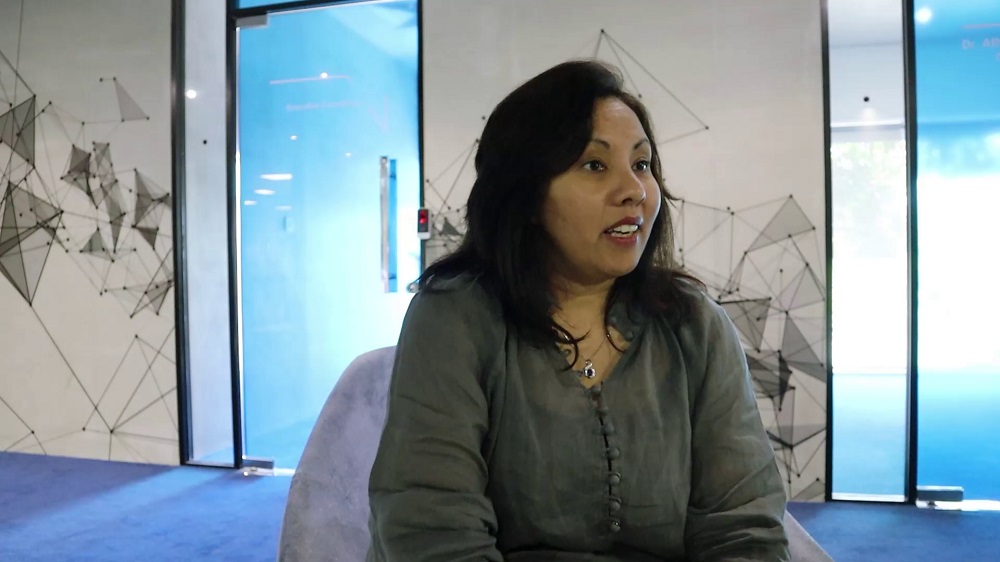
04th January 2024: Professor Dimple Quyn, Curtin University’s Interim Dean for Learning and Teaching offered her perspective on higher education trends during her recent visit to Curtin Colombo. With technology transforming job roles and industry domains, she explained the need for universities to equip youth through modern teaching methods and skill-focused curriculum in response to the emerging science and engineering career environment. Highlighting Curtin’s flexible models that embed employability, Prof. Quyn discussed how these approaches prepare Curtin graduates, including Curtin Colombo, to thrive as disruptive technologies demand new capabilities.
Q: How important is the adoption of modern technologies for educators, especially high school teachers and university lecturers, in teaching?
The world has fundamentally changed due to advances such as generative AI and the transition to net zero emissions. As educators, we face pressing challenges to upskill current graduates and prepare future ones to ethically navigate the shifts. Students must build capabilities to safely connect AI and adapt as the energy transition excessively disrupts developing economies. We need to work together globally to meet the challenges that we face in the next decade or two.
Q: Can you highlight cutting-edge teaching strategies which have the potential to greatly improve the overall teaching experience?
Uplifting teaching quality benchmarked globally should begin by training staff at all academic levels. Mixing technologies for student-centric learning can make youth lifelong learners. Classrooms need to adopt digital tools, both live and self-paced, to keep students engaged and drive transformation. Supporting educators to creatively shape teaching around what learners need most will help to inspire students in the future.
Q: How can high school and undergraduate students actively contribute to enhancing their learning experience alongside teachers and lecturers through new technology?
Curtin University actively promotes students to take ownership of their learning journey. This empowerment begins at the school level. However, we have a responsibility to today’s digital-native students. We must engage with them, co-develop relevant curricula, and adapt to this generation’s needs, which are so different from our own educational experiences long ago. Understanding their environment, where technology is inherent, is crucial. For Generation Z, having a phone, a laptop, and internet access is commonplace. Actively participating in educating and assisting them on this journey is an essential commitment that we engage in.
Q: What skills and knowledge will be crucial for graduates in the next decade, and how will these be integrated into the teaching and learning process to meet the changing demands in the job market?
In the coming decade, critical skills for graduates across all fields include critical thinking, problem-solving, teamwork, empathy, and the ability to collaborate globally. The expanding use of technology has virtually brought the world closer, emphasizing the need to equip students with the mindset of lifelong learning. It is essential to convey that their learning journey extends beyond university. Encouraging short courses, continuous professional development, and fostering the understanding that skills need constant updating are pivotal, particularly as the jobs of the future are being created.
Q: What are your thoughts on the trend of a shortage of females entering the engineering and STEM fields?
Globally, engineering faces a substantial gender disparity, notably in Australia, where female representation is below 20%. The government emphasizes increasing females in STEM fields, a cause I personally champion as a chemical engineer. Through initiatives including the Girls in Engineering Tomorrow program, an award-winning effort I’ve been involved in, we aim to bolster the pipeline of female students entering engineering. I am a staunch advocate for greater inclusion of girls in engineering courses and believe that universities, in collaboration with industry, should actively contribute to enhancing this pathway and pipeline.
Q: How does Curtin University actively contribute to meeting the demand for engineers and other support services in Western Australia?
Curtin University boasts about half of all university graduates in engineering in Western Australia. Our reputation in engineering and related fields is well-established, with our mining engineering program ranked as the second-best globally. Many of our engineering courses receive high recognition both nationally and internationally. Curtin takes pride in this sphere, and our faculty collaborates extensively across our global campuses to ensure our accredited engineering courses effectively prepare graduates for the next decade.
Q: What engineering study options are available for students in Sri Lanka, particularly through Curtin Colombo?
Students have the opportunity to seamlessly continue their undergraduate journey at Curtin. Curtin Colombo offers a variety of engineering courses in collaboration with our other campuses, all fully accredited by Engineers Australia, making them recognized globally through the Washington Accord. Additionally, Computing and Business Administration courses are available at Curtin Colombo providing flexible learning options. For engineering courses, Curtin Colombo offers a unique pathway: students can undertake the Engineering Foundation Year locally before choosing to either transfer to Perth or continue their degree entirely in Colombo, offering flexibility in their academic journey.
For inquiries and registrations, students may visit www.curtincolombo.lk or contact the student recruitment team via email: inquiries@curtincolombo.lk or by phone: 076 555 8989.
At Curtin Colombo, we’re not just shaping students; we’re molding global citizens ready to make a difference in an interconnected world. Join us and embark on a journey that will not only expand your horizons but also transform your life.



